Are you passionate about supporting our veterans and helping them thrive in their post-service lives? Writing a grant proposal can be a powerful way to secure funding for initiatives that truly make a difference. In this article, we'll explore a comprehensive letter template that outlines how to effectively communicate your mission and needs. So, let's dive in and empower veterans together!
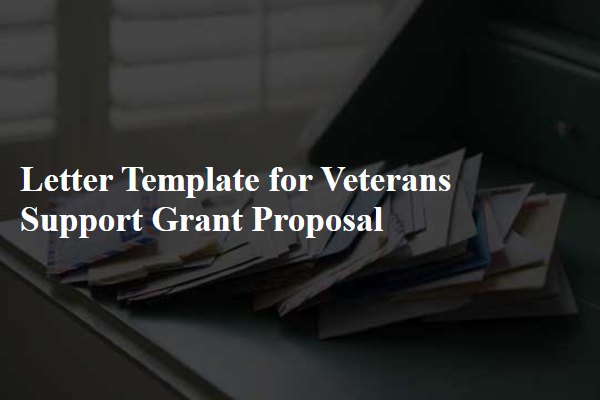
Clear Objectives and Goals
The veterans support grant proposal outlines specific objectives and measurable goals aimed at enhancing the well-being of military veterans. Key objectives include increasing access to mental health services, improving employment opportunities, and enhancing community integration. Targeting a 25% increase in participation by veterans in mental health programs within 18 months will mitigate issues such as PTSD (Post-Traumatic Stress Disorder) and depression. Additionally, establishing partnerships with local businesses aims to create 100 job placements annually, focusing on skills training tailored to veteran needs. Community workshops and events will promote awareness and foster connections, with a goal of seeing at least 200 veterans engage in public activities each quarter, thereby reinforcing a supportive environment that values their service and sacrifices.
Comprehensive Needs Assessment
Veterans face unique challenges when transitioning to civilian life, necessitating a thorough Comprehensive Needs Assessment to identify essential support services. Specific areas of focus include mental health resources, such as counseling for PTSD affecting approximately 20% of veterans, housing assistance programs addressing homelessness impacts on approximately 40,000 veterans nationwide, and job training initiatives aimed at decreasing unemployment rates, which stand at 3.6% among veterans. Local community organizations, such as the Veterans of Foreign Wars (VFW) and the American Legion, play crucial roles in providing outreach and support. Additionally, statistical data from the Department of Veterans Affairs (VA) illustrates the need for improved access to medical care, particularly in rural areas where veterans may face transportation barriers due to a lack of available facilities. Identifying these specific needs and gaps ensures that the proposed grant initiatives will effectively address the diverse challenges faced by veterans.
Detailed Budget Breakdown
The detailed budget breakdown for the veterans support grant proposal outlines essential categories and expenses necessary for program implementation. Personnel costs constitute a significant portion of the budget, including salaries for project coordinators and mental health professionals specializing in veteran care, calculated based on current market rates ($55,000 - $75,000 annually per staff member). Facility costs incorporate rental fees for local community centers in cities like Denver and Phoenix where support workshops will be held, estimated at $2,000 per month. Program materials encompass educational resources, printed materials, and technology tools, with projected expenses around $10,000 for the entire year. Transportation costs are accounted for, ensuring accessibility for veterans to attend events, projected at $5,000 for services like bus passes and taxi reimbursements. Lastly, a contingency fund of 10% is included to address any unforeseen expenses during program execution, totaling an additional $8,000 for potential liabilities or emergency needs.
Evidence of Community Impact
Local veterans' support programs in cities like San Diego and Chicago have significantly improved community engagement and mental health outcomes. Programs such as Veterans Affairs (VA) mental health initiatives reported a 30% decrease in PTSD symptoms among participating veterans within six months of joining support groups. Community workshops, including skills training and networking events held in local community centers, have connected over 1,500 veterans to meaningful employment opportunities, with a 25% job placement rate reported in six months. In addition, collaboration with organizations like The American Legion and local nonprofits has led to the distribution of over 1,000 care packages to homeless veterans in the area during winter months, directly addressing immediate needs and fostering a sense of solidarity within the community. Ongoing surveys demonstrate a 40% increase in veteran involvement in civic activities, showcasing the enhanced sense of belonging and support resulting from these initiatives.
Strong Evaluation and Sustainability Plan
A strong evaluation and sustainability plan is crucial for veterans support programs seeking funding. The plan should incorporate quantitative metrics (such as participant engagement rates) and qualitative feedback (like testimonials) to assess the program's effectiveness in assisting veterans. Key performance indicators (KPIs) might include the number of veterans served, improvement in mental health indicators, or employment rates post-program participation. Sustainability involves developing partnerships with local organizations, such as veteran service organizations (VSOs) and community centers, to secure ongoing resources. Additionally, strategies to secure alternative funding--through grants, donations, and fundraising events--should be outlined to ensure long-term viability beyond initial grant periods. By embedding evaluation methods throughout the program, continuous improvement and adaptability can be achieved, ensuring veterans receive the most beneficial support possible.

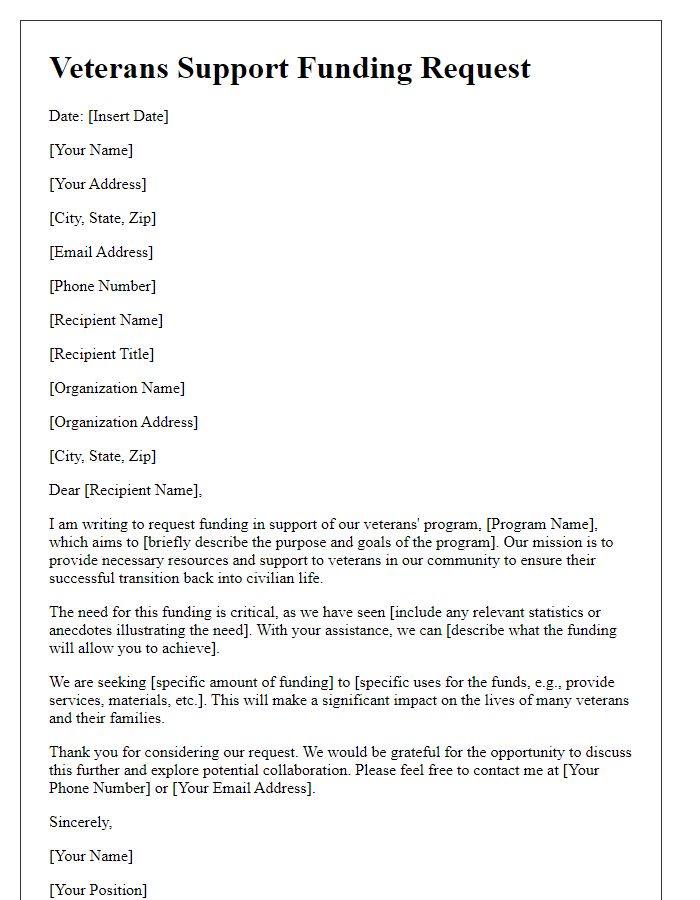
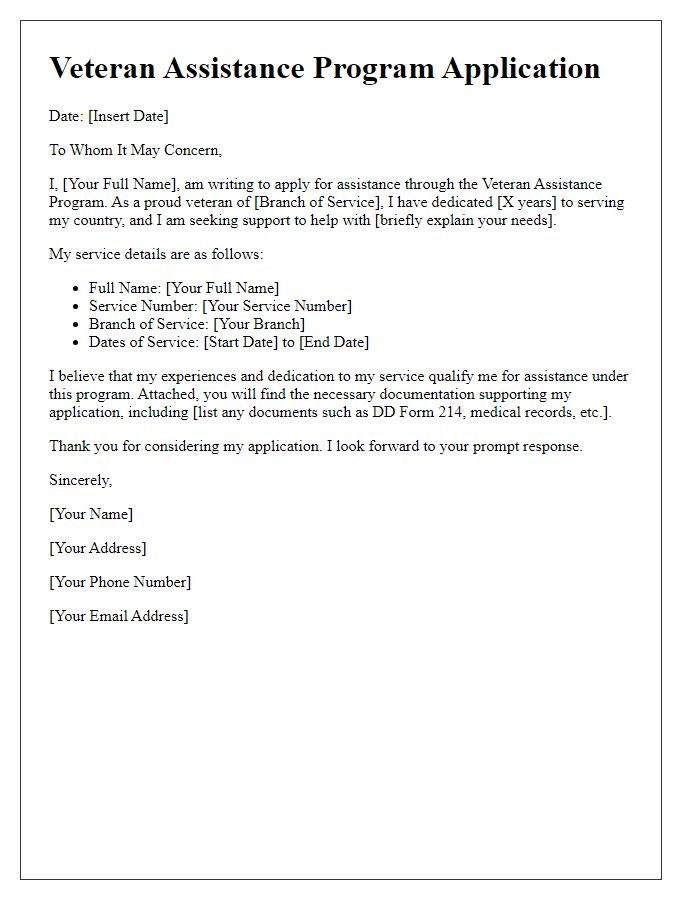
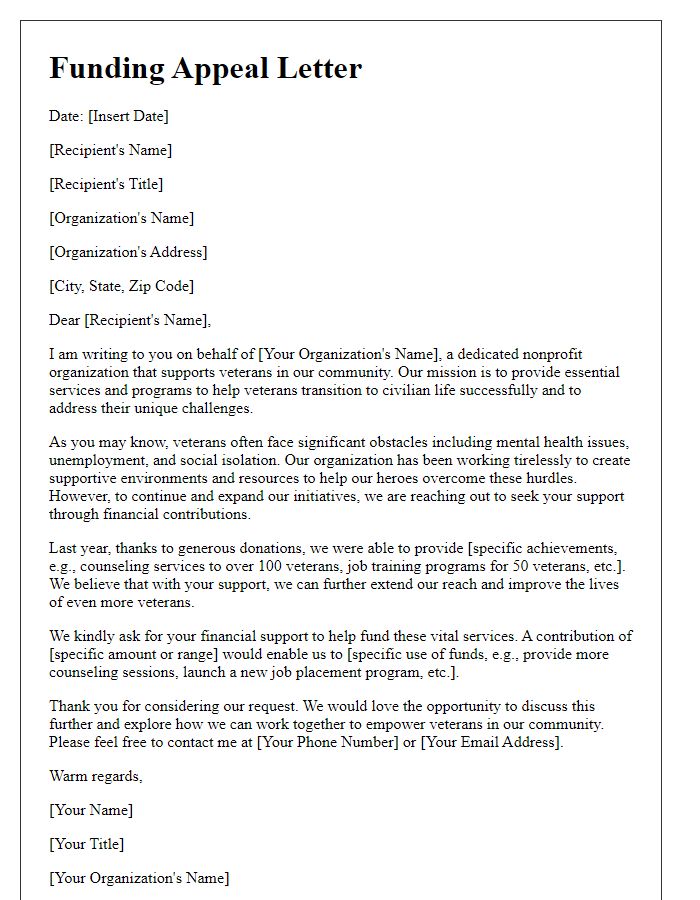
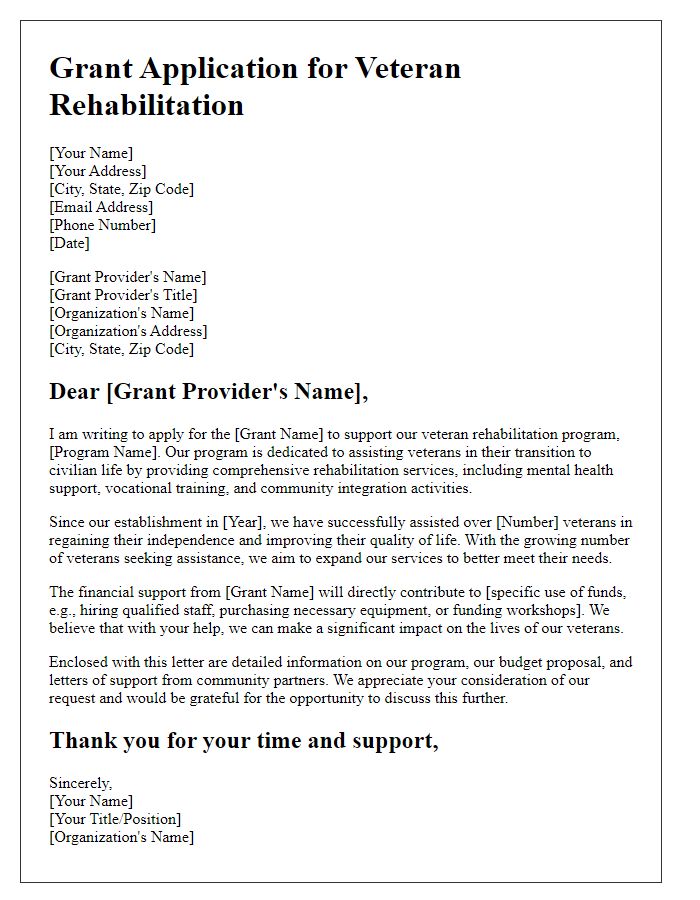
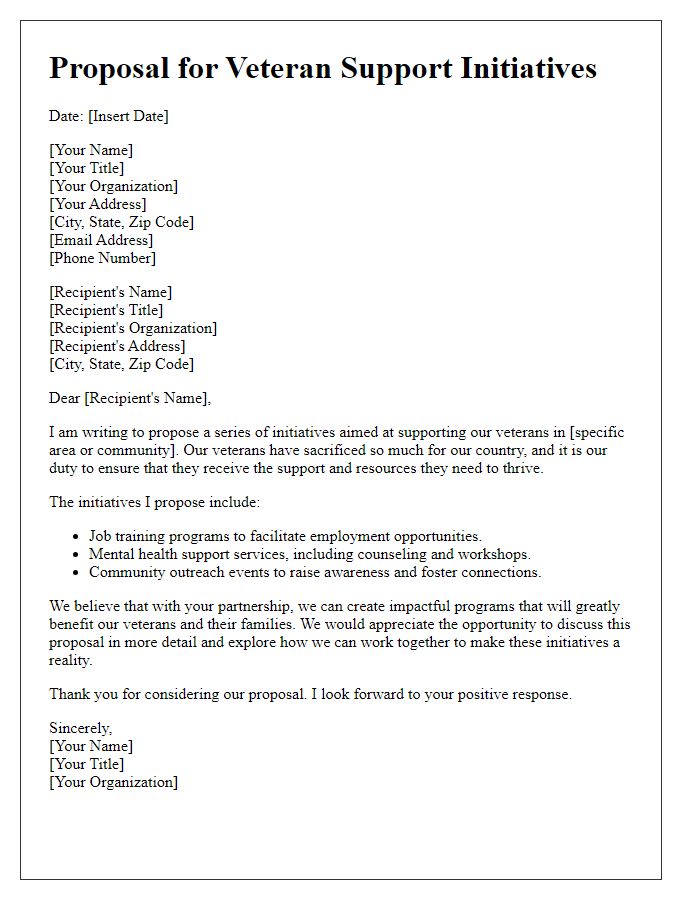
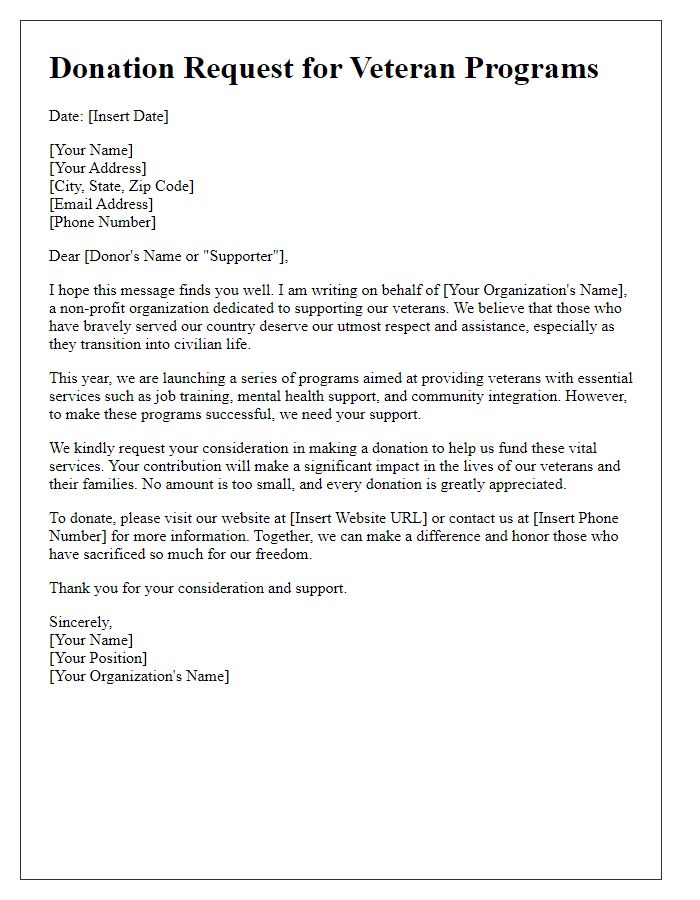
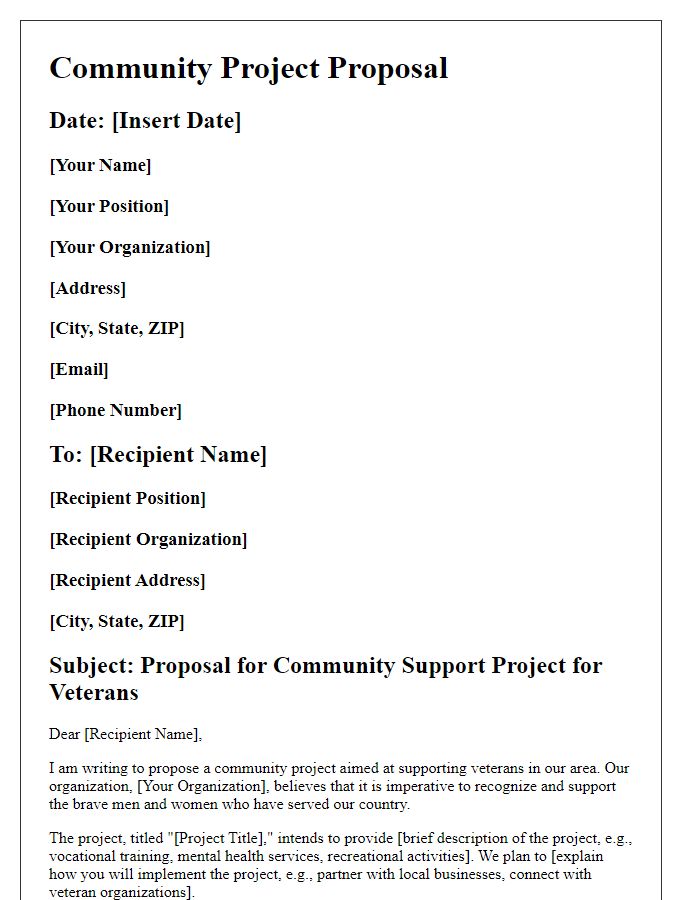
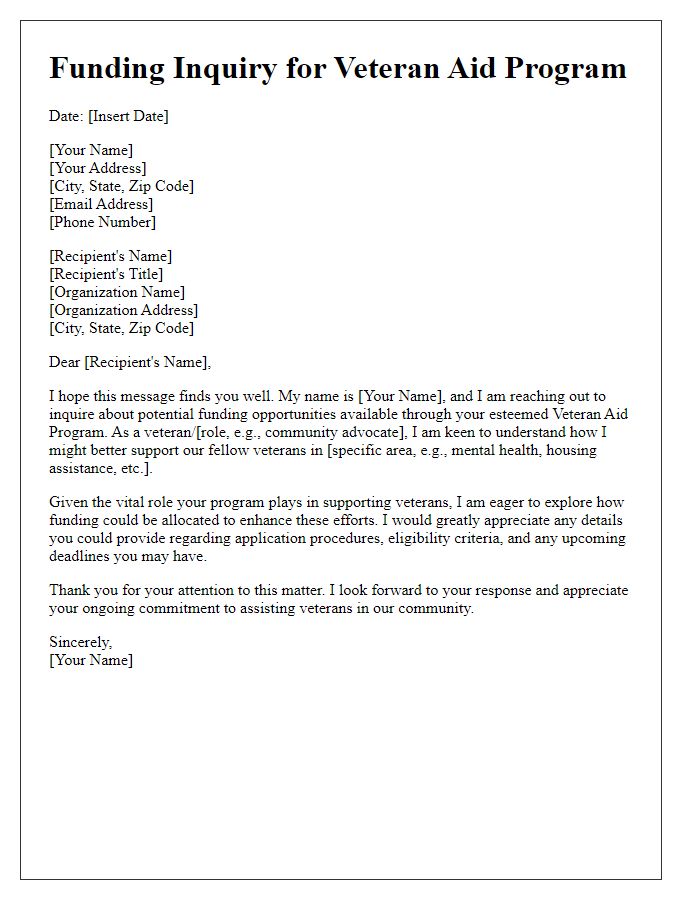
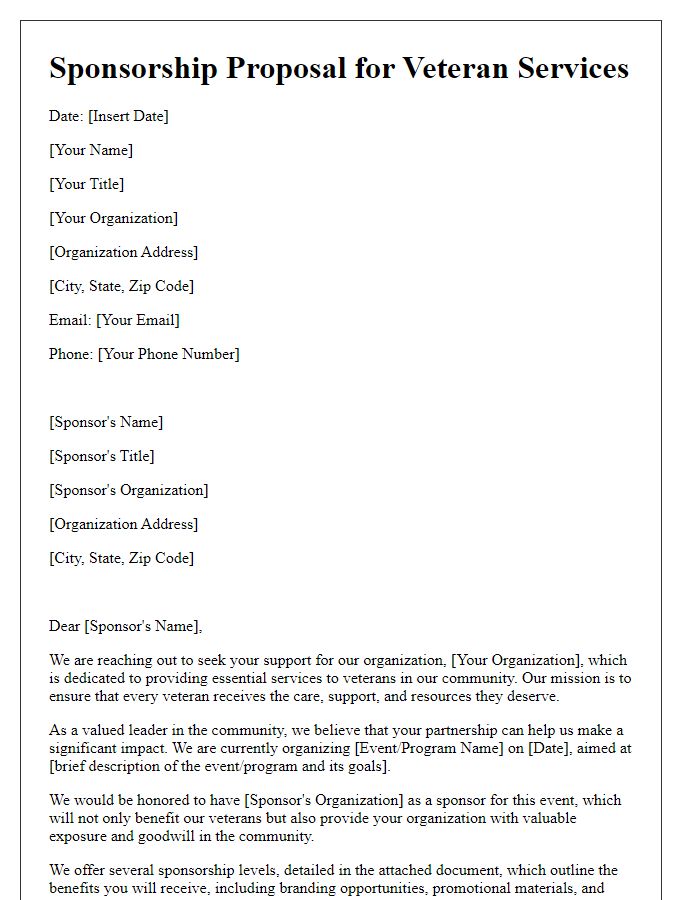
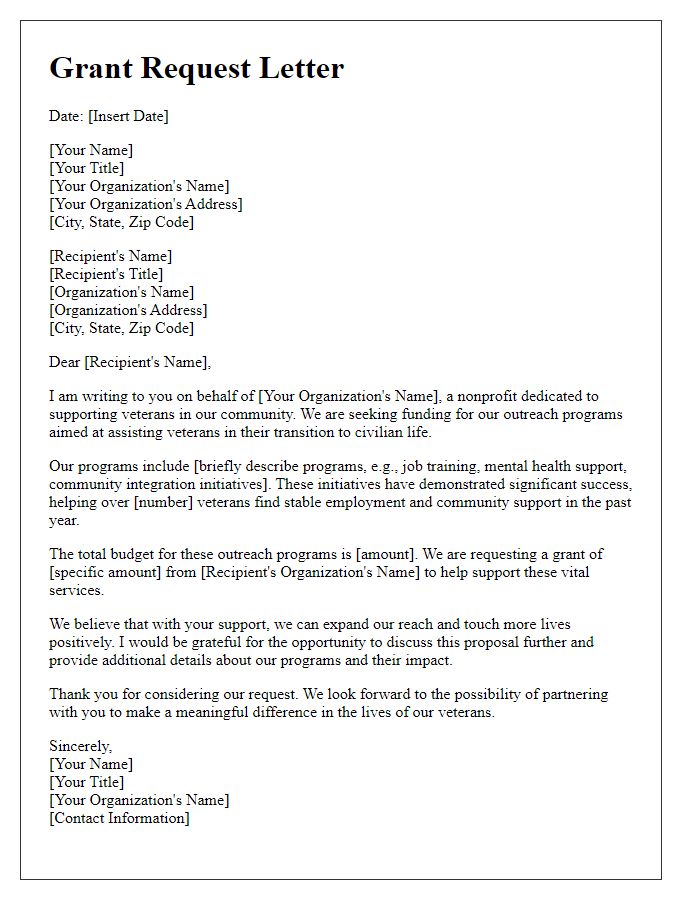


Comments